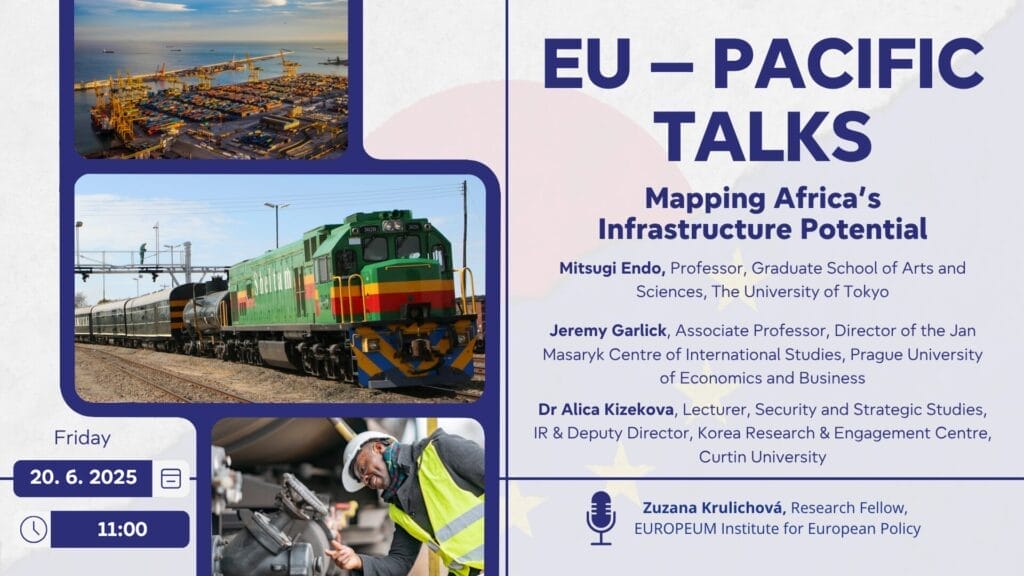
DEBATE | EU-Pacific Talks: Mapping Africa’s Infrastructure Potential
More info 20. 6. 2025
20. 6. 2025
Africa stands at the forefront of global infrastructure transformation, with initiatives like the Global Gateway and the Belt and Road Initiative highlighting its strategic importance. This discussion will explore Africa’s vast infrastructure potential and examine the role of cooperation with Indo-Pacific partners in shaping its future. What unique opportunities can such partnerships bring? How can they align with the goals of local actors while navigating challenges such as financing, sustainability, and geopolitical tensions? Join us to delve into the perspectives of stakeholders and uncover pathways to unlock Africa’s infrastructure promise.
REPORT: Prague Climate Academy – Cities and Heat Waves: Public Health
More info 17. 6. 2025
17. 6. 2025
The sixth meeting of the Prague Climate Academy took place on 17 June at the British Embassy in Prague. This time the discussion focused on the growth of heat waves and the associated health risks.
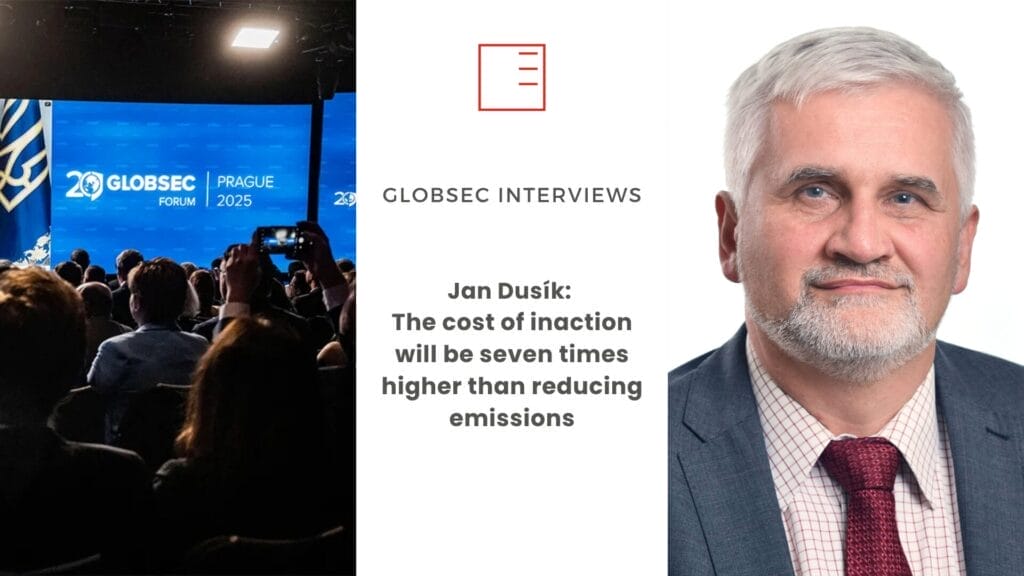
Globsec Interviews | Jan Dusík: The Cost of Inaction Will Be Seven Times Higher than Reducing Emissions
More info 12. 6. 2025
12. 6. 2025
Jan Dusík is Deputy Director-General at the European Commission's Directorate-General for Climate Action (DG ENV). In his role, he focuses on linking environmental policies to public health and the protection of marine ecosystems. Previously, he served as Minister of the Environment of the Czech Republic and as Regional Director of the United Nations Environment Programme at the GLOBSEC Security Conference, where we discussed the link between climate security and Europe's green transformation.
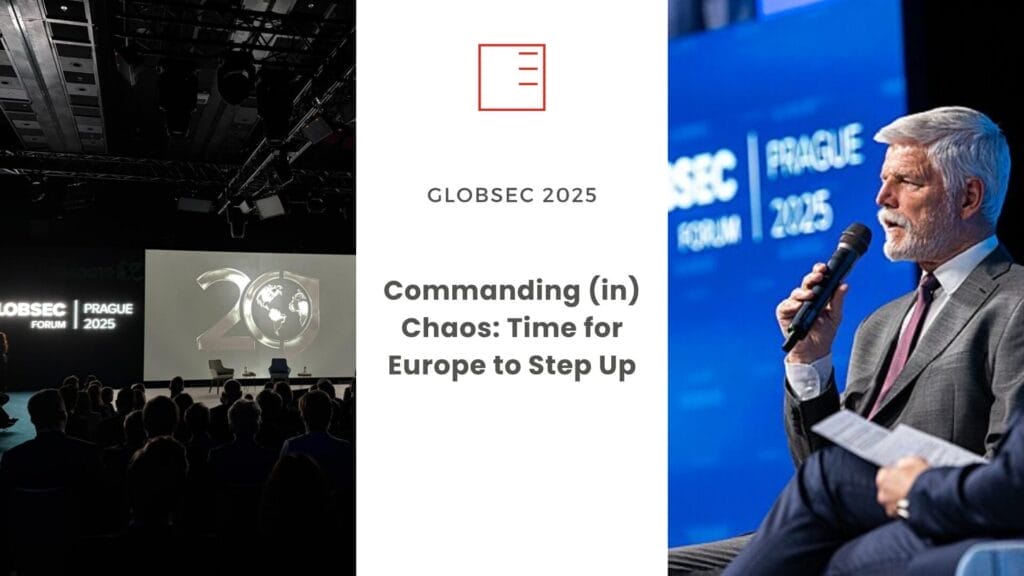
GLOBSEC 2025: Commanding (in) Chaos: Time for Europe to Step Up
More info 12. 6. 2025
12. 6. 2025
Prague this year hosted the landmark 20th edition of the GLOBSEC Forum 2025, which over the past two decades has built a reputation as one of Europe's most influential gatherings on global security, geopolitics, technology, and sustainability. Held under the patronage of President Petr Pavel and the Ministry of Foreign Affairs of the Czech Republic, the event brought together representatives from governments, business, and civil society from nearly 80 countries.
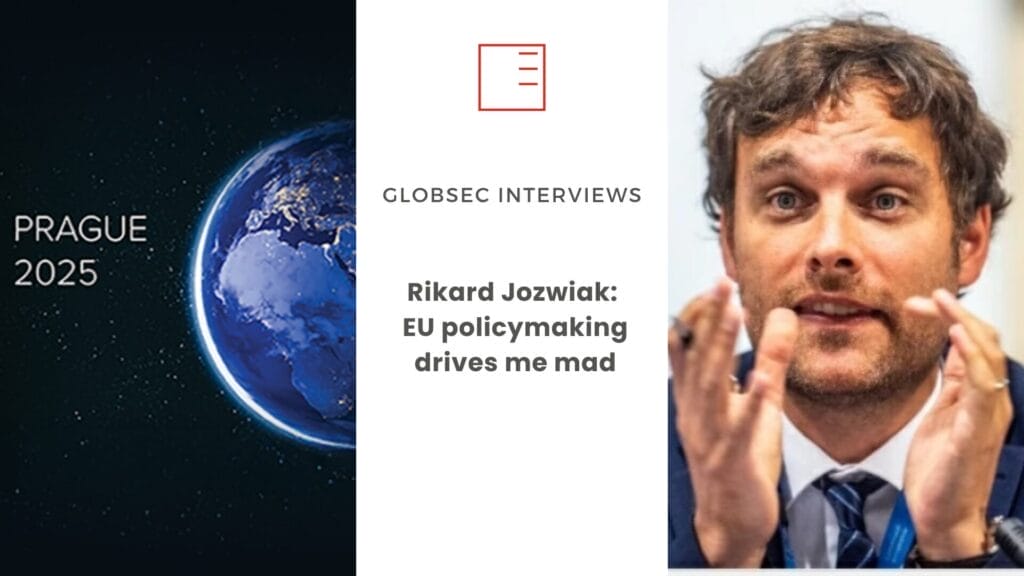
Globsec Interviews | Rikard Jozwiak: EU policymaking drives me mad
More info 12. 6. 2025
12. 6. 2025
Rikard Jozwiak is an accomplished journalist and seasoned EU observer currently serving as the Europe Editor at Radio Free Europe/Radio Liberty (RFE/RL) in Prague. With two decades of experience reporting on European Union and NATO affairs, he is recognised for his sharp analysis and clear-eyed commentary on complex international developments.
Prior to taking up his current post, Rikard was RFE/RL’s Brussels correspondent, where he covered numerous EU and NATO summits, European elections, and key international court rulings. His reporting has taken him across most European capitals as well as to Central Asia, offering him a rare front-row seat to Europe’s evolving role on the global stage.
With a journalist’s instinct and geopolitical insight, Rikard remains one of the most respected voices interpreting Brussels politics for global audiences.
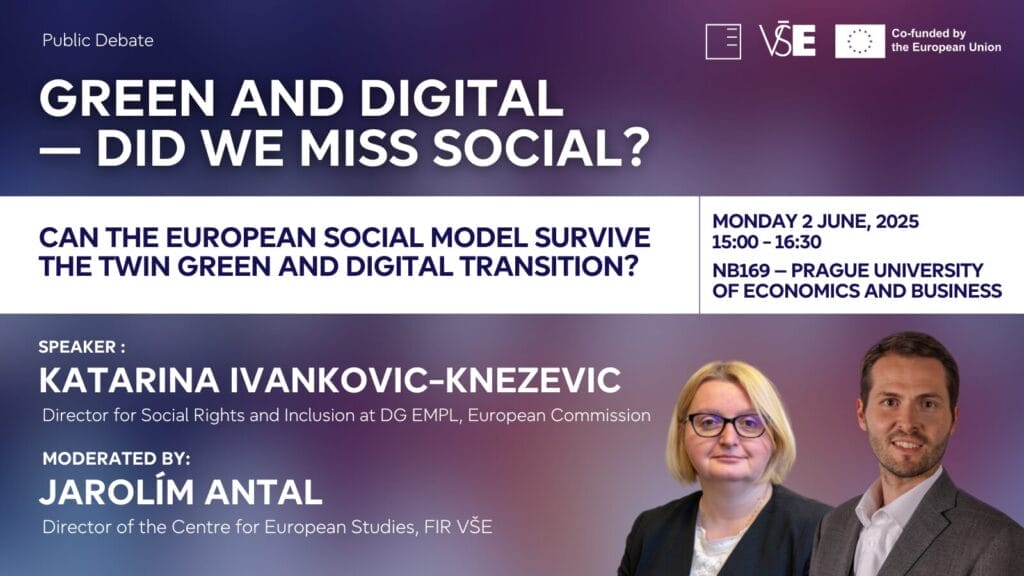
REPORT: Public debate | Green and Digital — Did We Miss Social?
More info 2. 6. 2025
2. 6. 2025
On 2 June, a debate on the future of green and digital Europe was held at the University of Economics in Prague. The guest speaker was Katarina Ivanković-Knežević, Director for Social Rights and Inclusion at the European Commission's Directorate-General for Employment, Social Affairs and Inclusion. The debate was moderated by Jarolím Antal, Director of the Centre for European Studies at the Faculty of International Relations.
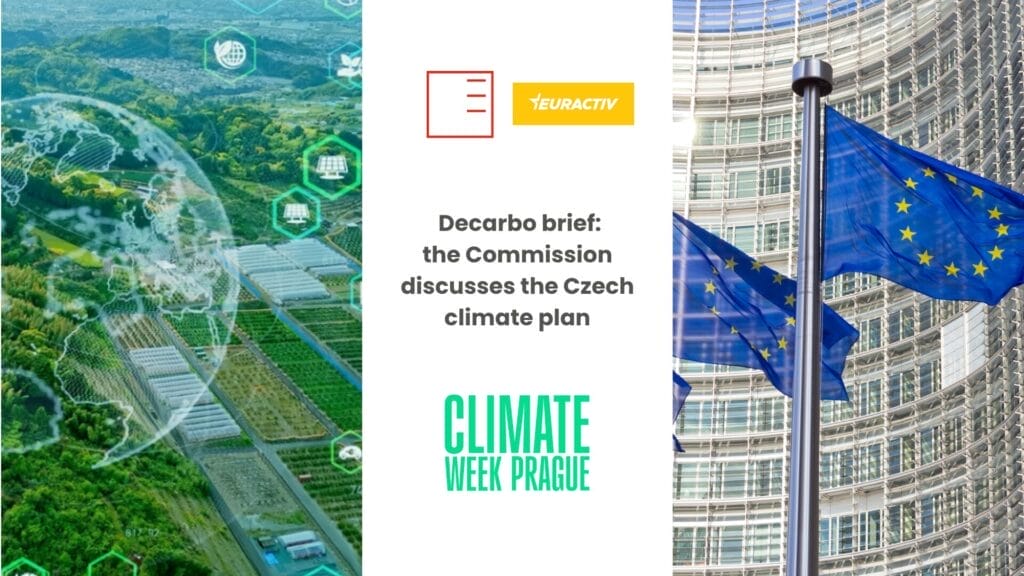
EURACTIV | Decarbo Brief: The Commission Reviewed the Czech Climate Plan
More info 2. 6. 2025
2. 6. 2025
The EUROPEUM Institute, together with the organization Change for the Better, organized a seminar where Czech businesses had a unique opportunity to formulate a common position on the implementation of the Net-Zero Industry Act (NZIA) and to discuss its impact on the Czech industrial sector.
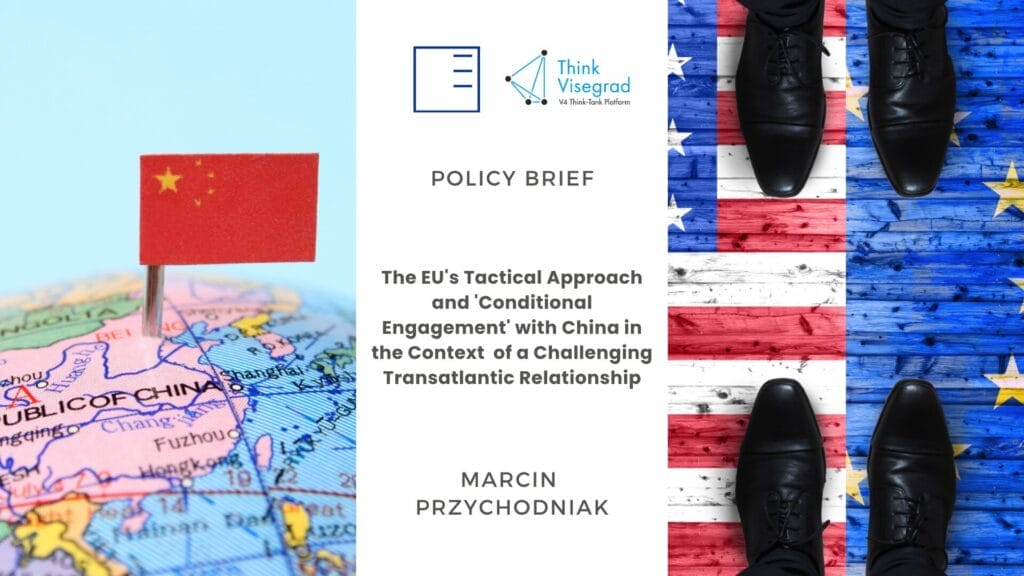
Policy Brief | The EU's Tactical Approach and 'Conditional Engagement' with China in the Context of a Challenging Transatlantic Relationship
More info 30. 5. 2025
30. 5. 2025
In this Policy Brief, Marcin Przychodniak analyzes the European Union’s current approach to China in the context of shifting transatlantic relations and growing tensions between the US, the EU, and China. The paper highlights key challenges – from increasing dependency on Chinese raw materials and investment concerns to the need for stronger EU defensive tools against economic coercion. It offers recommendations on how to more effectively protect European interests and security amid rising geopolitical tensions.
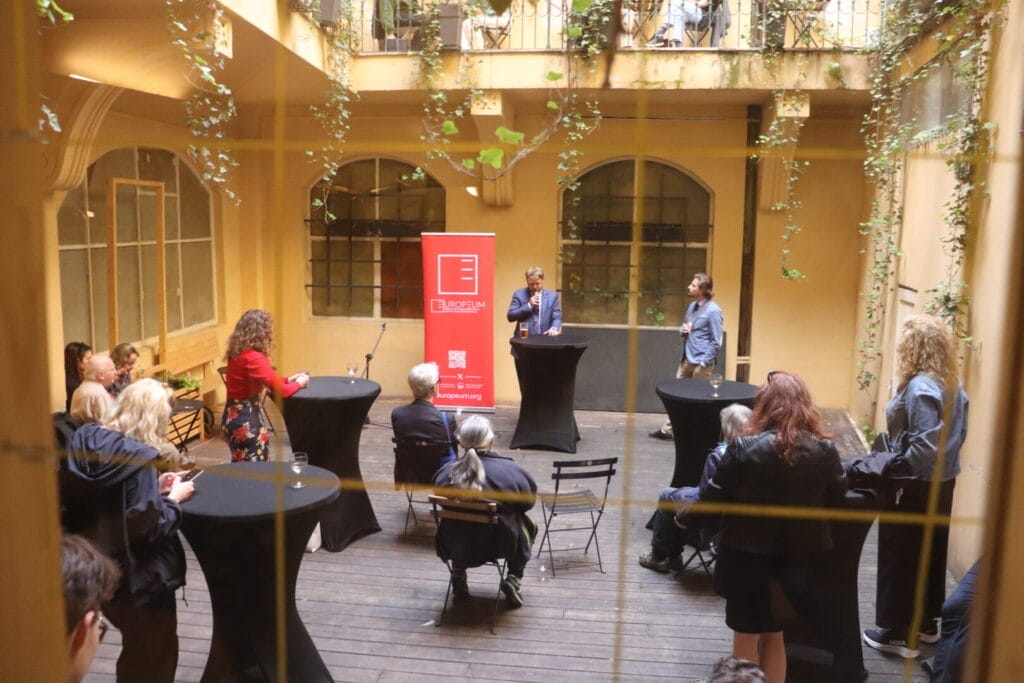
REPORT: European Thursday in Scout Institute with Štěpán Černý
More info 29. 5. 2025
29. 5. 2025
On the last Thursday of May, we once again gathered at the Scout Institute for another of our regular debates on European topics. Our May guest was Štěpán Černý, Director General of the European Section at the Office of the Government, who will be departing for Brussels in June to serve as the Czech Ambassador to COREPER I. In this report, we bring you a photo gallery from the event as well as an exclusive interview with Štěpán Černý about what COREPER actually is and what kind of work awaits Štěpán in Brussels.
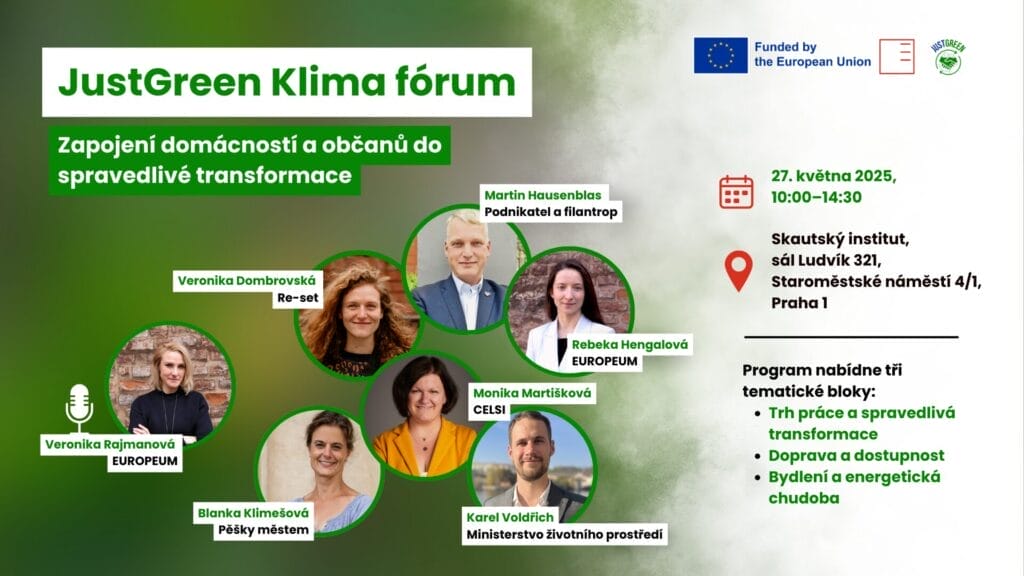
JustGreen Climate Forum | Engaging households and citizens in a just transformation
More info 27. 5. 2025
27. 5. 2025
Join us for the JustGreen Climate Forum, taking place on May 27, 2025, at the Scout Institute in Prague. Come and discuss how households and citizens can contribute to a just climate transformation. The event features three thematic blocks focused on the labor market, transport, and housing-including energy poverty. The forum offers space for sharing opinions, experiences, and concrete suggestions on how to build a more sustainable future together. Take part in an open dialogue with experts and other participants, and discover what steps we can take collectively!
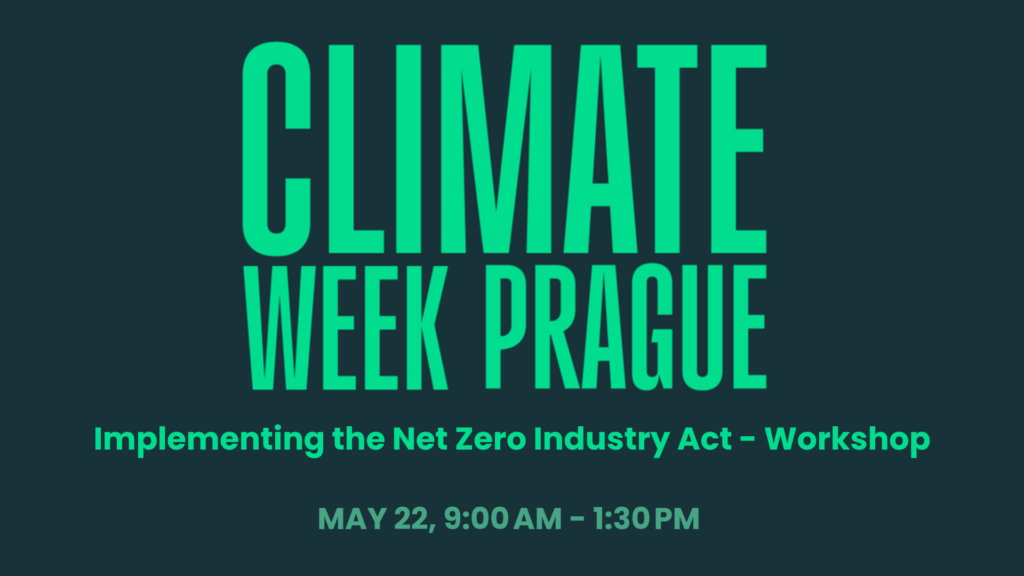
Climate Week Prague | Implementing the Net Zero Industry Act
More info 22. 5. 2025
22. 5. 2025
This workshop, organised by a business association Change for the Better together with Europeum, is a unique opportunity for Czech businesses to formulate a collective position on the implementation of the Net Zero Industry Act (NZIA) and discuss its impact on the Czech industrial sector.
The session will focus on key strategic issues such as financing, regulation, and the competitiveness of the Czech industry in the context of the green transition.
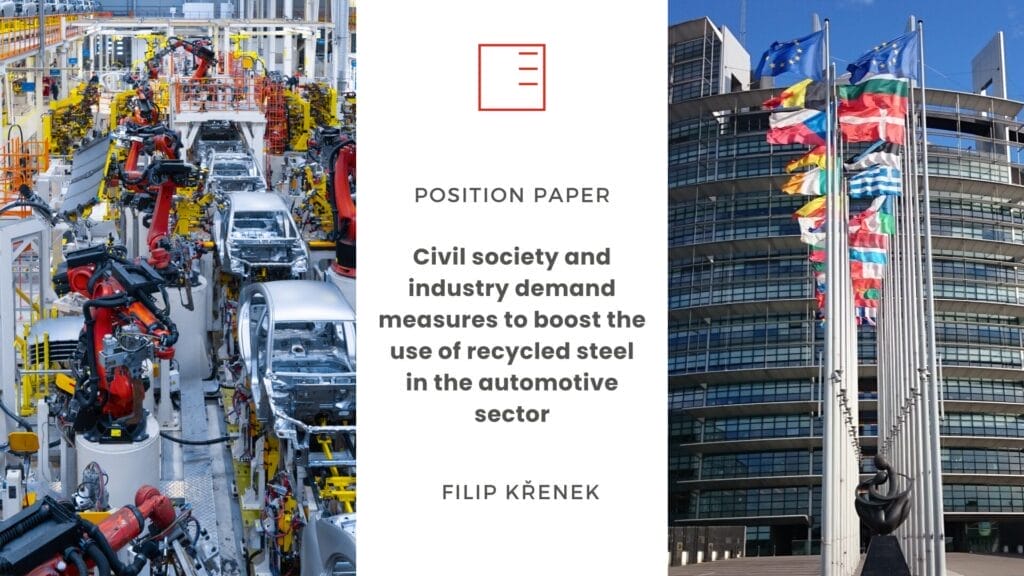
Position Paper | Civil society and industry demand measures to boost the use of recycled steel in the automotive sector
More info 21. 5. 2025
21. 5. 2025
The European automotive industry is undergoing a major transformation. As EU legislation on vehicle circularity is being updated, non-profit organisations, think tanks, and representatives of the recycling sector are calling on the European Parliament and the Council to set more ambitious targets for the use of recycled steel in car manufacturing.
The signatories of the joint statement are urging stronger measures to ensure that recycled steel becomes a standard component in automotive production.